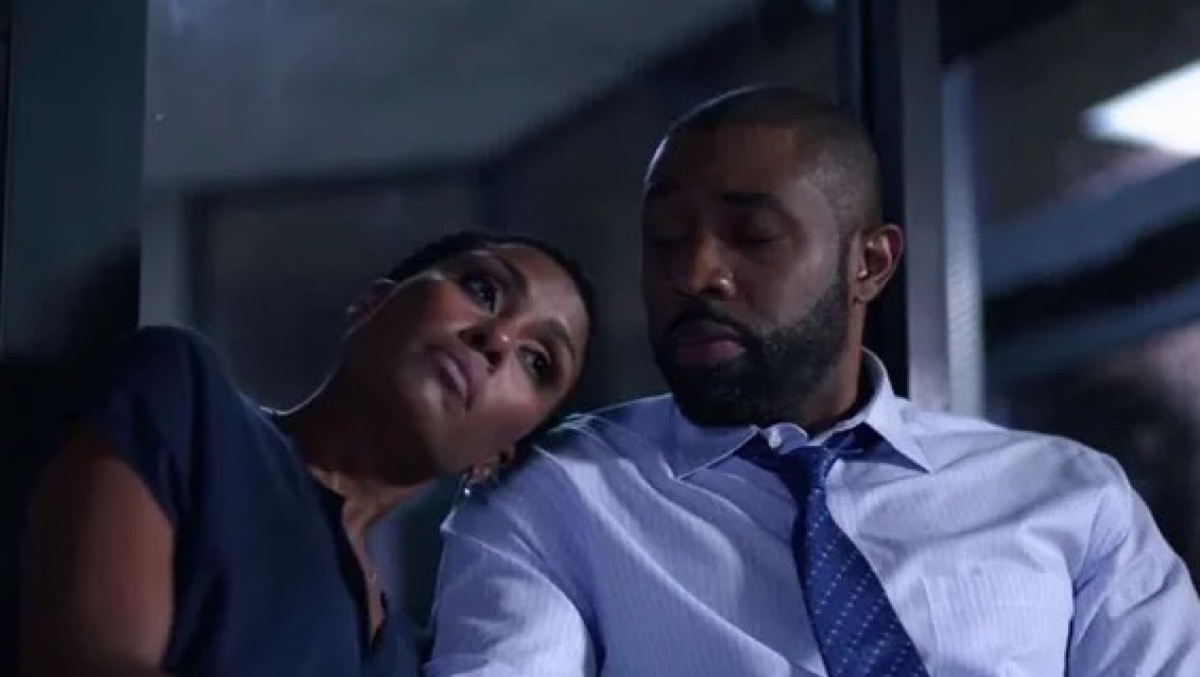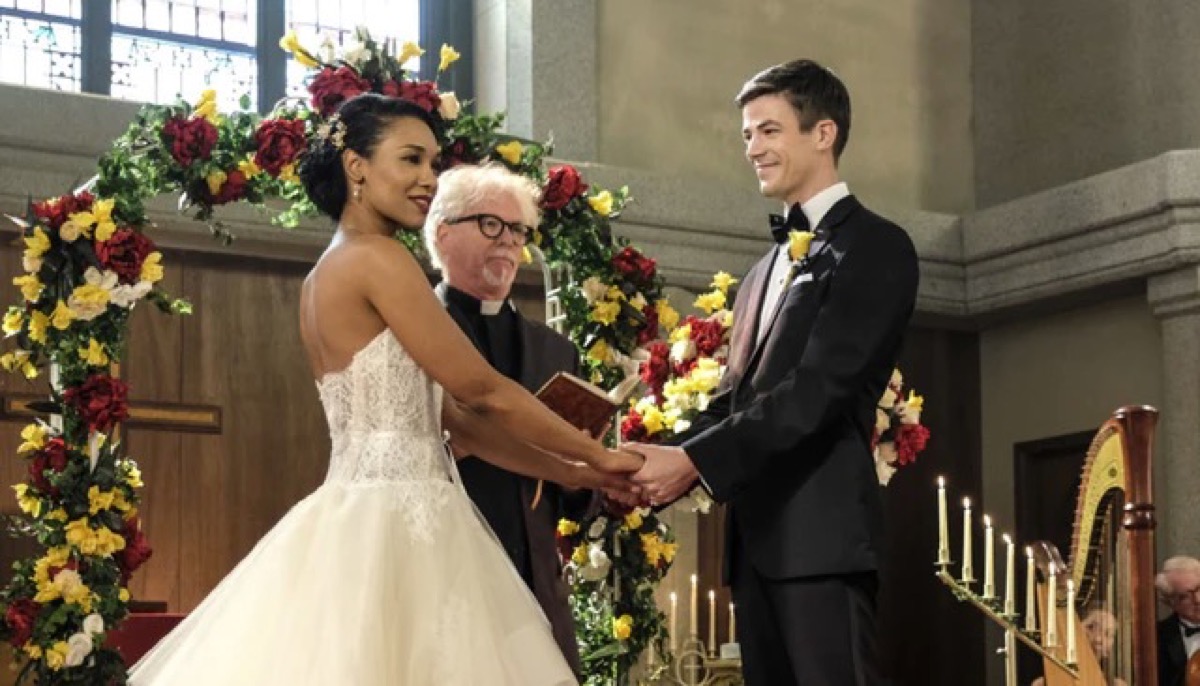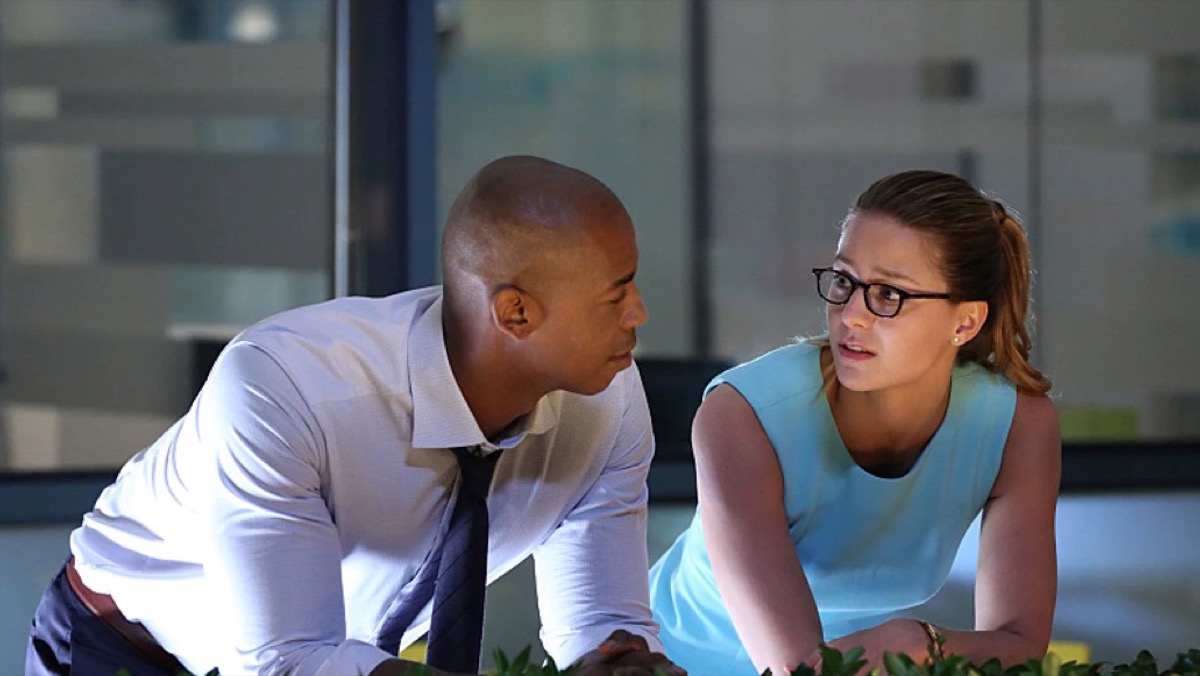In the first season of The CW’s Arrowverse series, the love interests and the romances surrounding them tend to be the weakest link.
Probably the hardest character to write is one intended to be the love interest. You need to make sure that this character has a) chemistry with your protagonist, b) a personality that shows why your protagonist is in love with them, and c) a believable love story to unfold within the world you’ve created. On top of all of that, the love interest should be their own character with their own desires and dreams, outside of the protagonist.
In most media, the love interest is usually who the protagonist ends up with in the end. Now, this is a generalization, of course—sometimes the love interest changes, whether due to circumstance or story. In superhero stories, given how long many of these characters have been around, the love interests are pretty set. At least, DC Comics has a pretty rigid set of romances. Clark Kent will always end up with Lois Lane. Arthur Curry and Mera will be King and Queen of Atlantis. Batman and Catwoman will have their own “catch me if you can” flirtation.
This, of course, brings us to the Arrowverse and its love interest problem.
Now, there are exceptions to the rule. With the inclusion of Black Lightning into the Arrowverse thanks to “Crisis on Infinite Earths,” we can point to the romance between Jefferson Pierce (Cress Williams) and Lynn Stewart (Christine Adams) as one that isn’t affected by this problem, but it’s a rare exception.
For the most part, beginning with Arrow’s first season, the love interest plot just doesn’t click. It’s honestly a little bit baffling that no one can figure out how to make the problem work. Originally, Oliver’s (Stephen Amell) love interest is supposed to be Laurel Lance (Katie Cassidy-Rodgers). There are the hallmarks for that sort of romance: Oliver going to Laurel for help both in and out of his superhero guise, the love triangle with Tommy Merlyn (Colin Donnell), their romantic past, and how other characters seem to nudge them together.
Early on, however, a spanner is thrown into the plan in the form of one Felicity Smoak (Emily Bett Rickards). Fans went nuts for her. Rickards and Amell’s chemistry was off the charts. It outclassed what was being pushed with Laurel and Oliver. The writers of Arrow, rather smartly, took a step back and looked at things. The romance between Oliver and Felicity became what fans clung onto about Arrow the most. They wanted to see these two end up together, even though Felicity didn’t even exist in comics. Before Arrow, Oliver always ended up with Black Canary.
That’s the thing with television: It’s always great to have an overarching plan as to where your series will go, but you need to make sure that there’s some flexibility in it, as well. Luckily, the Arrow writers were able to course correct, change the love interest, and recover Laurel. She was able to become her own character outside of Oliver as both her Earth-1 and Earth-2 selves.
Much like a real relationship, there is time in television for a romance to unfold in a natural and organic way. While characters on a page may be able to have romantic tension, it doesn’t mean it will necessarily translate into when you put actors in the mix. Actors will vibe with each other in different ways. Sometimes, the romance will truly unfold when both parties on firmly on the same page.
Iris West-Allen (Candice Patton) is the best example of beating the curse of the first person losing within the Arrowverse. Honestly, the love triangle plot with Iris, Barry (Grant Gustin), and Eddie (Rick Cosnett) was pretty strong, overall. The Flash writers also had a clear endgame in mind for its stellar first season. (Although it’s worth thinking about how things would have turned out if Iris were brought into the secret from the start.)
Once Iris was brought into everything about Barry’s double life, she was firmly involved with it. To the credit of the writers, Iris was also allowed to grieve for Eddie and grow as a character. Barry was also allowed to grow and make his own peace. When Iris and Barry were finally involved with each other, it was due to them being on the same emotional page.
Yes, there was a whole “Destiny” and “soulmate” element to their relationship. The future changed as they did, reflected in the newspaper. It was only when they were able to grow past a shaky start that they were able to grow into their relationship. Soulmates exist in the Arrowverse, but they need to build the groundwork of their relationship, just as we do in real life.
That’s probably where the Hawks failed. Legends of Tomorrow had the roughest first season out of every show in this discussion. It was too slow, too dark, and too grim. Vandal Savage (Casper Crump) was boring as a villain. The millennia-old love tragedy between Savage and the reincarnated lovers of Chay-Ara (Ciara Renée) and Khufu (Falk Hentschel) was at the center of the season. Oh boy, there was just … fans got nothing from it. It didn’t help that Carter Hall and his subsequent/previous reincarnations were pretty boring characters. Bless Ciara Renée; she tried her hardest, but there was just nothing.
Honestly, it was pretty much a mercy that the Hawks left the series at the end of season one. They even redeemed Savage, kind of, while Ray was in Hell in season four. Go figure about that.
After the whole disaster of the first season, Legends of Tomorrow rightly fixed itself first. While there was the forbidden time romance between Nate (Nick Zano) and Amaya (Maisie Richardson-Sellers), it didn’t cast a shadow over the whole season. Subsequent relationships such as the one between Sara Lance (Caity Lotz) and Ava Sharpe (Jes Macallan), or the one between Ray Palmer (Brandon Routh) and Nora Dahrk (Courtney Ford), have the natural chemistry between the actors building a solid foundation to create really great love stories.
The Hawks didn’t have that. Honestly, if they stayed, then we would probably have had a James Olsen (Mehcard Brooks) situation. Speaking of which, we should talk about Supergirl.
Melissa Benoist’s extremely brave revelation of her experience with intimate partner violence (along with the timeline she provided) definitely casts a shadow over the first season of Supergirl in terms of the romance. James Olsen clearly was meant to be Kara Danvers (Benoist) love interest. The pair, however, had chemistry issues, and even though James was more knowledgeable about superhero things, he just felt like a superfluous character. Given the revelations, one has to wonder if Benoist was intentionally holding herself back during any scene that smelled of romance.
Whatever the reason, Kara had a new love interest in the form of Mon-El (Chris Wood) when Supergirl moved to The CW in season two. Suddenly, James really had no purpose in the series. The writers clearly didn’t know what to do with him. Unlike Laurel, who recovered as a character, James just had mishmash of half-baked plots thrown at him. None of them were really explored in any truly meaningful way. You kind of got to feeling bad for Brooks.
While fans are hoping that Supercorp, a relationship between Kara and Lena Luthor (Katie McGrath), will become a reality, Kara did season four and most of season five without a love interest, and she did just fine without one. If the writers don’t go with the Kara and Lena romance, having Kara just do a Crazy Ex-Girlfriend and choose herself would be a solid way to go.
Then, there’s Sophie (Meagan Tandy), who is clearly Kate’s love interest on Batwoman. It looks like she’s falling for the same issue that plagues the first love interest of Arrowverse shows. Sophie is Kate’s ex-girlfriend from military school. When the pair were caught, Sophie denied their relationship so she could have better opportunities. It comes down to LGBTQ+ issues and privilege. Sophie has a homophobic family, is a woman of color, and has people counting on her to make money. Kate is from a wealthy family and is white. It’s a real issue. You can definitely understand where each side is coming from.
Sophie is now married to a man, Tyler (Greyston Holt). Kate is single and has been pining for her lost love for years. While both Kate and Sophie still have feelings for each other, the writers have written themselves into a corner. Kate’s not a home-wrecker. While she’s hiding her identity as Batwoman, she won’t hide other parts of herself. Sophie clearly wants to keep Kate close, but it’s causing a rift with her husband.
It’s a complicated issue. While the episode “Tell Me the Truth” did some necessary fleshing out of Sophie’s character, her controlling behavior toward Kate, along with loyalty to Jacob Kane (Dougray Scott) above all else, makes it hard to root for her and Kate to end up together. Sophie is a very sympathetic character, but there’s a line between feeling for her and wanting her and Kate to find a way to each other.
We’ll have to see how things work out for Batwoman and if it will beat the problem with the first love interest introduced. Given the Arrowverse’s history, it’s not looking great.
(featured image: The CW)
Want more stories like this? Become a subscriber and support the site!
—The Mary Sue has a strict comment policy that forbids, but is not limited to, personal insults toward anyone, hate speech, and trolling.—














Published: Dec 2, 2019 10:17 am